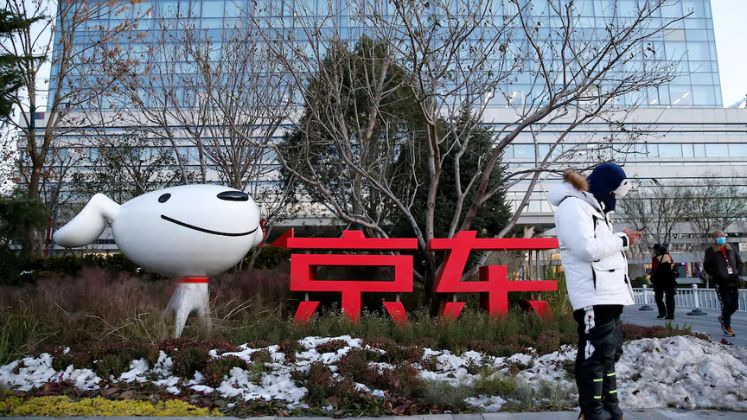
As the trade war between the United States and China intensifies, major Chinese retail companies are stepping in to assist domestic exporters in pivoting to the local market. This move comes in response to Beijing’s recent increase in tariffs on US imports to 125 per cent, a retaliatory measure against US President Trump’s decision to raise duties on Chinese goods to 145 per cent.
E-commerce behemoth JD.com announced the establishment of a 200-billion-yuan ($27.35 billion) fund dedicated to helping Chinese exporters sell their products within China over the next year. The company outlined plans to dispatch its personnel to foreign trade-oriented Chinese businesses to directly procure their “high-quality products.” Furthermore, JD.com will create a dedicated section on its e-commerce platform to feature these goods, providing targeted traffic and marketing support.
In a parallel move, supermarket chain Freshippo, a subsidiary of Alibaba and a key competitor of JD.com, unveiled a streamlined process for export-focused companies to tap into the domestic market. Known as Hema in Chinese, Freshippo will also establish a specialised zone on its platform exclusively for products from these exporters. The company pledged to simplify the onboarding process for these businesses and grant them access to its extensive warehouse network.
Earlier in the week, two other prominent supermarket operators in China, CR Vanguard and Yonghui Superstores, had already announced similar support initiatives for Chinese exporters facing trade headwinds.
Yonghui Superstores, in a statement, acknowledged the challenges faced by Chinese supply chain enterprises amid the evolving global economic landscape and escalating international trade wars. The company declared its commitment to opening a “green channel” to expedite the listing of exporters’ products on their shelves within 15 days, providing a crucial pathway for those seeking to shift their focus to domestic sales.
These support programs from China’s leading retailers aim to mitigate some of the financial losses that exporters may incur due to reduced international sales. By facilitating a swift transition or expansion into the domestic market, these initiatives offer a potential lifeline, although exporters will undoubtedly encounter fierce competition within China’s slowing economy.






